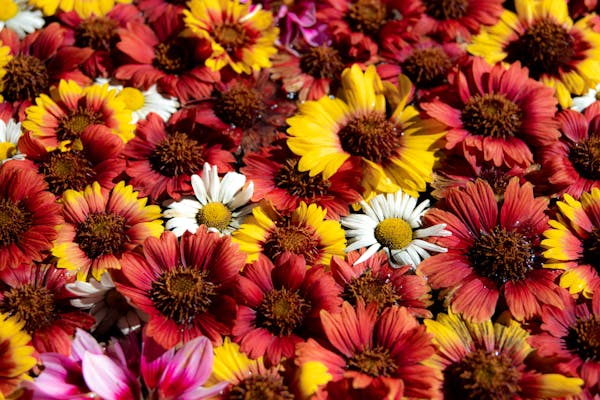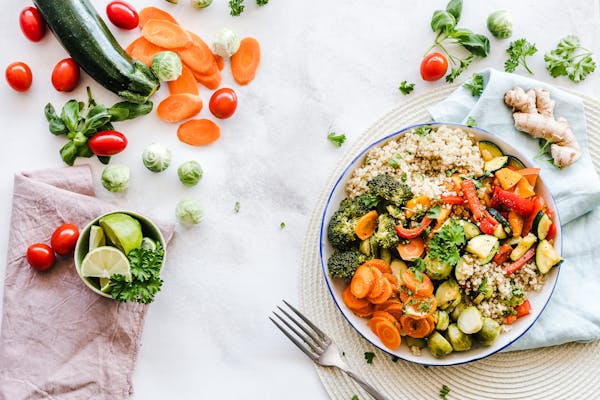The Complete Vata-Kapha Dosha Guide: Diet, Lifestyle & Balance Tips
This definitive guide explores the unique Vata-Kapha dual-dosha constitution in Ayurveda. Learn how to identify your traits, recognize imbalances, and implement a holistic plan covering diet, herbs, and daily routines to achieve stable, vibrant health and mind-body harmony.
In the world of Ayurveda, your unique mind-body blueprint, or Prakriti, is defined by the interplay of three fundamental energies: Vata (the energy of movement), Pitta (the energy of metabolism), and Kapha (the energy of structure). While many people have one dominant dosha, it's common to have a dual-dosha constitution. The Vata-Kapha type is a fascinating blend of opposites: the light, airy, and mobile nature of Vata combined with the heavy, earthy, and stable qualities of Kapha.
When in balance, a Vata-Kapha individual is both creative and reliable, adaptable and steady. However, this internal polarity can create a unique set of challenges. Are you often caught between feeling anxious and lethargic? Do you experience both dryness and congestion? If so, understanding how to nurture your Vata-Kapha nature is the key to unlocking your full potential for wellness.

Are You a Vata-Kapha Type? Core Characteristics
The Vata-Kapha constitution is a blend of contrasting qualities. Vata, composed of Air and Ether, brings creativity, quick thinking, and a love for change. Kapha, made of Earth and Water, provides stability, compassion, and physical endurance. Understanding how these manifest is the first step in your wellness journey. If you're unsure of your primary constitution, taking an Ayurvedic Prakriti quiz can offer valuable insights.
A person with a Vata-Kapha prakriti often exhibits a mix of physical and mental traits from both doshas. This can be confusing without the proper lens of Ayurvedic wisdom. Recognizing these patterns helps in creating a lifestyle that supports both the Vata and Kapha elements within you.
Common Vata-Kapha Traits:
- Physical Frame: Often have a body frame that is either slender (Vata) but with good stamina (Kapha), or a larger frame (Kapha) that is prone to joint cracking (Vata).
- Skin: A tendency towards both dryness (Vata) and oiliness or clamminess (Kapha), often varying with the seasons.
- Digestion: Can be highly variable. You might experience gas and bloating (Vata) one day, and sluggishness or heaviness after meals (Kapha) the next. Your digestive fire, or Agni, can be delicate.
- Energy Levels: A classic "stop-and-go" pattern. Bursts of high energy and creativity (Vata) can be followed by periods of inertia and low motivation (Kapha).
- Mental & Emotional Nature: When balanced, you are creative yet practical, flexible yet grounded. When imbalanced, you may swing between anxiety and worry (Vata) and feelings of attachment or melancholy (Kapha).
"The dual-dosha constitution requires a nuanced approach. The goal is not to suppress one dosha for the other, but to create a lifestyle that skillfully pacifies the aggravated dosha of the moment while supporting the overall system. Routine is the anchor for Vata, while stimulation is the spark for Kapha."

The Tug-of-War Within: Signs of Vata-Kapha Imbalance
An imbalance, or Vikriti, in a Vata-Kapha individual often manifests as a confusing mix of symptoms, as the two doshas can aggravate each other. Cold is a quality shared by both, making Vata-Kapha types particularly susceptible to cold, damp weather, which can worsen symptoms across the board.
Recognizing the early signs of imbalance is crucial for taking corrective action before they become more deep-seated. Typically, one dosha will be more prominent in the imbalance, depending on season, diet, and lifestyle stressors. For instance, autumn is a Vata season, while late winter and spring are Kapha seasons.
When Vata is Aggravated:
- Dry skin, lips, and hair
- Constipation, gas, and bloating
- Restlessness, anxiety, and insomnia
- Feeling cold, especially in the hands and feet
- A racing, scattered mind
When Kapha is Aggravated:
- Sinus congestion and seasonal allergies
- Lethargy, excessive sleep, and difficulty waking up
- Weight gain and water retention
- A feeling of heaviness in the body and mind
- Lack of motivation and emotional attachment

Nourishing Harmony: The Ultimate Vata-Kapha Diet Plan
The key to a Vata-Kapha diet is to choose foods that are warming, lightly nourishing, and easy to digest. This approach helps to ground the airy nature of Vata while simultaneously stimulating the sluggishness of Kapha. The single most important rule is to favor warm, cooked foods over cold, raw, or processed ones.
Your digestive fire (Agni) is the cornerstone of health. A Vata-Kapha diet must support Agni without overwhelming it. This means eating regular meals, avoiding overeating, and using digestive spices to make food more bioavailable. To learn more about this crucial aspect, you can explore how to improve digestion with Ayurveda.
Foods to Favor:
- Grains: Quinoa, barley, millet, basmati rice, and cooked oats. These are light yet satisfying.
- Vegetables: Best when cooked. Asparagus, carrots, beets, green beans, onions, garlic, and leafy greens (in moderation).
- Legumes: Mung beans (especially in kitchari), red lentils, and tofu.
- Spices: Ginger, turmeric, cumin, fennel, cinnamon, black pepper, and hing (asafoetida) are essential for stimulating digestion and providing warmth.
- Fruits: Soaked raisins, cooked apples, apricots, berries, and peaches. Favor sweet and ripe fruits.
- Oils: Use ghee, sunflower oil, or sesame oil in moderation for cooking.
Foods to Reduce or Avoid:
- Dairy: Heavy and cold, dairy can increase Kapha. If consumed, opt for small amounts of warm, spiced milk or fresh yogurt (lassi) at midday.
- Sweeteners: Refined sugar increases Kapha. Raw honey (in moderation) is the best choice.
- Heavy Foods: Red meat, hard cheeses, and deep-fried foods should be avoided.
- Cold & Raw Foods: Raw salads, iced drinks, and frozen desserts will extinguish your digestive fire.

Creating Stability: A Balancing Lifestyle & Daily Routine (Dinacharya)
For a Vata-Kapha individual, a consistent daily routine, or Dinacharya, is non-negotiable. Routine provides the stability that calms Vata's erratic tendencies, while the commitment to daily activity helps to overcome Kapha's inertia. The goal is to create a rhythm that is both grounding and invigorating.
This routine aligns your internal clock with the cycles of nature, promoting balance in your hormones, energy levels, and digestion. As detailed in a study on chronobiology from the National Institutes of Health (NIH), syncing our lives with natural light-dark cycles has profound health benefits.
A Sample Vata-Kapha Daily Routine:
- 6:00 AM: Wake up before sunrise. This is crucial to avoid the heavy Kapha energy that dominates after 6 AM.
- 6:15 AM: Scrape your tongue to remove ama (toxins) and drink a large glass of warm water, perhaps with a slice of ginger.
- 6:30 - 7:15 AM: Engage in movement. This could be brisk walking, dynamic yoga (like Sun Salutations), or dancing.
- 7:30 AM: Perform Abhyanga (self-massage). Use a warming oil like sesame or a blend of sesame and sunflower oil. This practice is detailed in our guide on the benefits of Abhyanga.
- 8:00 AM: Take a warm shower and have a light, warm breakfast like cooked oats or quinoa porridge.
- 12:00 PM - 1:00 PM: Eat your main meal of the day when your digestive fire is strongest.
- 6:00 PM - 7:00 PM: Have a light, warm dinner, such as a hearty vegetable soup or kitchari.
- 9:30 PM: Begin winding down. Turn off screens, read a book, or listen to calming music.
- 10:00 PM: Be in bed. Consistent sleep is vital for both Vata and Kapha balance.
Frequently Asked Questions
What is the best exercise for a Vata-Kapha type?
The ideal exercise for Vata-Kapha is moderately intense, consistent, and enjoyable. Activities like brisk walking, hiking, cycling, dancing, and flowing Vinyasa yoga are excellent choices. They provide the stimulation Kapha needs without aggravating Vata's tendency toward exhaustion.
How should my diet change with the seasons?
In autumn and early winter (Vata season), emphasize warm, grounding, and slightly more nourishing foods to pacify Vata. In late winter and spring (Kapha season), focus on lighter, drier foods and increase pungent spices like ginger and black pepper to counteract Kapha's heaviness and congestion.
I feel both anxious and tired. What should I do?
This is a classic Vata-Kapha dilemma. The best approach is to establish a grounding routine. Start with a warm, nourishing breakfast, engage in gentle morning movement, and ensure you go to bed by 10 PM. A daily self-massage (Abhyanga) with warm sesame oil is incredibly effective for calming anxiety and moving stagnation.

No comments:
Post a Comment